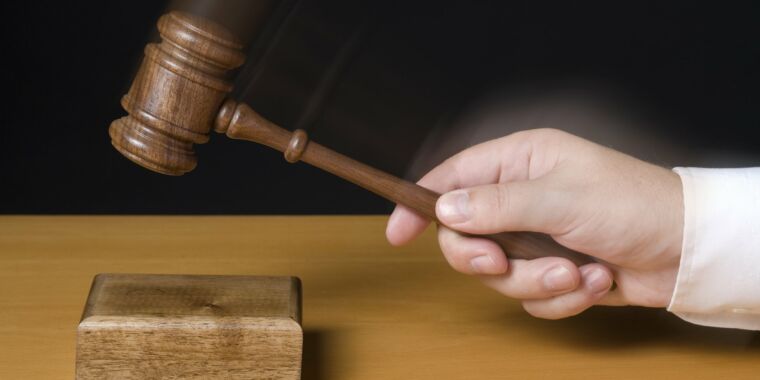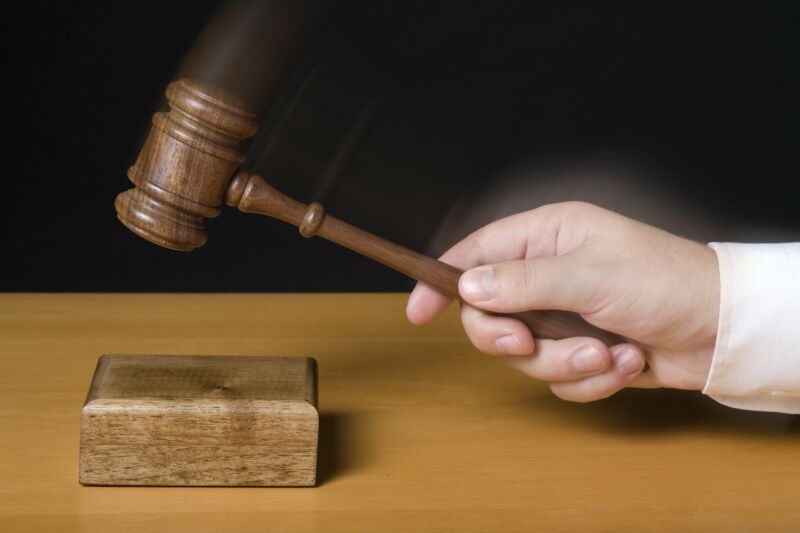Judge tears Florida’s social media regulation to shreds for violating To start with Amendment


A federal decide has blocked Florida’s new social media regulation for the reason that it violates the Very first Modification legal rights of tech businesses that moderate user information on their on the internet platforms. The point out legislation would make it unlawful for big social media websites like Fb and Twitter to ban politicians and impose other constraints on the tech organizations, but the judge’s buy suggests it simply cannot be enforced when an industry lawsuit against Florida is pending. The law would have taken outcome currently if not for the injunction.
The preliminary-injunction purchase issued by US District Choose Robert Hinkle yesterday identified as Florida’s regulation “an instance of burning the residence to roast a pig.”
“If a preliminary injunction is not issued, the plaintiffs’ customers will at times be compelled to converse and will occasionally be forbidden from talking, all in violation of their editorial judgment and the First Amendment,” Hinkle wrote. The tech companies would sometimes be forbidden from speaking for the reason that the Florida law’s definition of censorship features not only deleting material, but also “write-up[ing] an addendum to any written content or material posted by a consumer.”
For various motives outlined by the decide, the trade teams that sued Florida “are possible to prevail on the deserves of their assert that these statutes violate the First Modification,” Hinkle wrote. “There is absolutely nothing that could be severed and survive.” The judge’s purchase “preliminarily enjoins enforcement of the areas of the laws that are preempted or violate the Initially Amendment,” he wrote.
Trade teams symbolizing Facebook, Twitter, and other major internet sites quickly sued Florida after the state enacted its law in Might. The lawsuit was filed in US District Court docket for the Northern District of Florida.
Gov. claimed legislation would stop “censorship” of conservatives
Florida Gov. Ron DeSantis claimed the Sunshine State’s legislation would quit the “censorship” of conservatives on social media web-sites. The law’s prohibition on kicking politicians off social media platforms would have imposed fines of up to $250,000 per day on social media companies that ban candidates for elected workplace.
The regulation also mentioned that online platforms “may not choose any action to censor, deplatform, or shadow ban a journalistic business centered on the written content of its publication or broadcast,” unless the articles is “obscene.” One more provision would give Floridians the proper to sue Major Tech businesses above articles-moderation choices.
The law carved out an strange exemption for tech firms that occur to also very own substantial theme parks, which would benefit Disney and Comcast, the latter of which owns NBCUniversal such as Common Theme Parks. As Significant Tech trade teams pointed out in their lawsuit, “the exemption was included with the undisguised objective of making certain that selected businesses with major financial footprints in Florida—like Disney—are not ‘caught up in this.'”
Judge aspects anything incorrect with the regulation
Hinkle’s buy claimed that Florida’s regulation “compels vendors to host speech that violates their standards—speech they if not would not host—and forbids vendors from talking as they in any other case would. The Governor’s signing assertion and a lot of remarks of legislators clearly show fairly obviously that the laws is viewpoint-centered.”
In addition to violating the To start with Modification, Hinkle located that the Florida regulation is preempted by Part 230 of the Communications Decency Act, which gives on line platforms safety from lawsuits around how they moderate consumer-submitted content material.
“[D]eplatforming a applicant restricts accessibility to material the system plainly considers objectionable within the this means of [Section 230],” Hinkle wrote. “If this is finished in excellent faith—as can happen—the Florida provision imposing everyday fines is preempted by § 230(e)(3). Very good religion, for this intent, is identified by federal law, not state legislation. Eliminating a candidate from a platform primarily based on otherwise-authentic, typically relevant standards—those relevant to people today who are not candidates—easily fulfills the very good-faith need. Certainly, even a mistaken application of specifications could come about in good religion.”
Portion 230 also preempts the elements of the Florida legislation “that purport to impose legal responsibility for other conclusions to clear away or limit obtain to content” by creating a personal suitable of motion versus social media corporations, Hinkle wrote.
Theme-park exemption laughed out of court
Throughout oral arguments, Florida’s attorneys were being unable to mount a convincing protection of the theme-park exemption. Hinkle stated the lawful conventional of “demanding scrutiny” will have to utilize to the law even while the point out claimed the far more permissive “intermediate scrutiny” conventional really should be utilised. The regulation would seemingly are unsuccessful below both equally assessments, on the other hand.
“[I]n any celebration, when asked at oral argument, the Point out could suggest no concept beneath which the exclusion could endure even intermediate scrutiny,” Hinkle wrote. Further, “[d]espite the obvious constitutional issue posed by the exclusion, the Legislature adopted it, seemingly unwilling to subject matter favored Florida corporations to the statutes’ onerous regulatory burdens,” he wrote.
State has “no argument” that could go strict scrutiny
Hinkle then described why the law will not go strict scrutiny:
To survive strict scrutiny, an infringement on speech have to more a powerful state desire and ought to be narrowly personalized to reach that desire. These statutes arrive nowhere close. Indeed, the State has state-of-the-art no argument suggesting the statutes can survive stringent scrutiny. They plainly cannot. Initial, leveling the enjoying field—promoting speech on one particular aspect of an challenge or proscribing speech on the other—is not a legitimate point out fascination. Regardless of what may well be reported of any other allegedly persuasive point out curiosity, these statutes are not narrowly tailored. Like prior Initial Amendment limitations, this is an instance of burning the household to roast a pig.
The regulation is topic to rigorous scrutiny since it was enacted with a “viewpoint-centered determination.” The plaintiffs asserted “with substantial factual aid” that the legislation was determined by “hostility to the social media platforms’ perceived liberal viewpoint,” Hinkle wrote.
He ongoing:
So, for illustration, the Governor’s signing statement quoted the bill’s sponsor in the Residence of Representatives: “Working day in and day out, our freedom of speech as conservatives is underneath assault by the ‘big tech’ oligarchs in Silicon Valley. But in Florida, we explained this egregious instance of biased silencing will not be tolerated.” Likewise, in a further passage quoted by the Governor, the Lieutenant Governor stated, “What we’ve been observing across the U.S. is an exertion to silence, intimidate, and wipe out dissenting voices by the leftist media and large businesses… Luckily in Florida we have a Governor that fights versus huge tech oligarchs that contrive, manipulate, and censor if you voice sights that run contrary to their radical leftist narrative.”
Supplemental aspects make it obvious the legislation is written content-dependent, which include a single provision that “applies to deplatforming a prospect, not anyone else,” and a single that “imposes limits relevant only to substance posted ‘by or about a candidate,'” Hinkle wrote. The state also did not deliver a very good defense “for imposing these restrictions only on the greatest suppliers… even with out proof of an poor motive, the software of these prerequisites to only a little subset of social media entities would be sufficient, standing on your own, to issue these statutes to stringent scrutiny,” he wrote.
Law’s definition of journalism built minor perception
The law’s provisions on moderation of journalism appeared to strike the choose as nonsensical. “The statute defines ‘journalistic enterprise’ in a way that handles numerous entities that are engaged in journalism but numerous that are not any retailer who does business enterprise in Florida, has a site of considerable sizing, and fills 100,000 on the net orders per month seemingly qualifies,” he wrote. “A little newspaper, in contrast—one with less than 50,000 compensated subscribers and fewer than 100,000 energetic monthly users—does not qualify, no issue how large its journalistic requirements.”
Hinkle summarized his findings in the order’s conclusion:
The laws now at situation was an effort and hard work to rein in social-media suppliers considered way too massive and far too liberal. Balancing the trade of concepts amid private speakers is not a legitimate governmental interest. And even apart from the true commitment for this laws, it is plainly information-based mostly and issue to rigorous scrutiny. It is also subject to stringent scrutiny simply because it discriminates on its encounter amongst or else-equivalent speakers: amongst social-media vendors that do or do not fulfill the legislation’s dimensions prerequisites and are or are not less than popular possession with a theme park. The legislation does not endure rigid scrutiny. Parts also are expressly preempted by federal law.
Hinkle also discovered that the Florida regulation “is riddled with imprecision and ambiguity” but wrote that “[t]his get will need not and does not determine whether or not vagueness would provide an independent floor for a preliminary injunction.”
The Computer & Communications Field Affiliation, 1 of the trade teams that sued Florida, stated the law would have “empower[ed] undesirable actors to bring abusive lawsuits against digital expert services trying to safeguard consumers,” putting US-based mostly “Net customers at higher chance to foreign disinformation and propaganda and extremism, predators and fraudsters, and viruses and malware, amid other threats.”
“This decision upholding the Constitution and federal law is encouraging, and reaffirms what we have been stating: Florida’s statute is an extraordinary overreach, created to penalize private companies for their perceived deficiency of deference to the Government’s political ideology,” CCIA President Matt Schruers mentioned. “The court’s ruling is a get for world wide web people and the 1st Amendment.”







